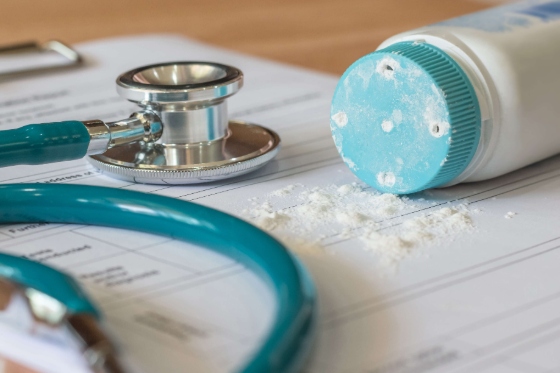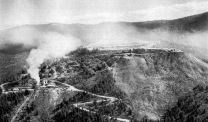Johnson & Johnson Weighs Options for Talc Liabilities
Legislation & LitigationWritten by Tim Povtak | Edited By Walter Pacheco

Johnson & Johnson is considering the creation of a new subsidiary to absorb its widespread asbestos liabilities, according to reports in The Wall Street Journal and other news outlets.
The J&J subsidiary would then declare Chapter 11 bankruptcy, potentially saving the multinational corporation billions of dollars.
Reuters News Service also reported the subsidiary possibility, citing unnamed personal injury attorneys who learned of the option while negotiating their current claims with J&J officials.
A spokesperson for Johnson & Johnson would not confirm the reports.
“Johnson & Johnson Consumer Inc. has not decided on any particular course of action in this litigation other than to continue to defend the safety of talc and litigate these cases in the tort system, as the pending trials demonstrate,” the company said in a statement.
The controversial legal strategy could help settle thousands of pending claims linking J&J’s iconic talc-based baby powder to ovarian cancer and malignant mesothelioma.
For plaintiffs, the move would likely result in protracted bankruptcy proceedings and reduced mesothelioma compensation for those who have not settled previously. Much would depend on how the subsidiary was funded.
If it becomes a reality, plaintiff’s lawyers likely would challenge the maneuver vigorously in court.
Number of J&J Lawsuits Growing
Johnson & Johnson is currently facing an estimated 30,000 lawsuits in U.S. courts today, the majority of which are blaming asbestos-contaminated talc products for cancers and other medical issues.
A small segment of those involve mesothelioma, a rare cancer caused predominately by exposure to asbestos. The naturally occurring, toxic mineral is often found in close proximity to where talc is mined.
J&J continues to insist its talc products are safe and do not cause cancers, citing numerous studies that established no clear link between the use of talc and ovarian cancer.
Other studies have shown opposite results. An investigation by Reuters in 2018 revealed J&J officials knew for decades that asbestos had been found in its talc products yet ignored the warning signs.
Jury verdicts have been mixed in recent years. Some have sided with J&J, and others have awarded large amounts to plaintiffs, although some have been reduced on appeal.
The company has been steadfast in its claim that its talc-based products are safe to use and continues to aggressively fight the lawsuits and verdicts against it.
That could be changing soon.
In June, the U.S. Supreme Court rejected a request from J&J to consider overturning a $2.1 billion award to 22 women who blamed contaminated talc for causing ovarian cancer.
The rejection was no surprise to J&J, which had set aside $3.9 billion earlier in 2021 for future talc-related litigation, according to regulatory filings with the U.S. Securities and Exchange Commission. The amount was almost double what the company reported in filings the previous year.
In 2020, J&J announced that it would stop selling its iconic talc-based baby powder in the U.S. and Canada, citing a decline in consumer demand and “misinformation” about the safety of the product.
The stoppage was less than a year after the company recalled 33,000 bottles of its baby powder when the U.S. Food and Drug Administration announced that a laboratory test found small traces of asbestos in one sample.

Patients and family members may be eligible to file a lawsuit after a mesothelioma diagnosis.
Get CompensationBankruptcy Filing Could Change Everything
Filing for bankruptcy after creating a new subsidiary would effectively halt the ongoing litigation. Other companies have used it effectively in recent years, according to the Reuters report.
Georgia-Pacific, for example, used a similar strategy to reorganize and limit liability in 2017 when it created Bestwall LLC, shortly before it filed for bankruptcy in North Carolina.
The bankruptcy maneuver allows a company like Johnson & Johnson to avoid the potentially huge settlements or jury judgements. It will put numerous lawsuits in one court as a bankruptcy proceeding. They often take several years to settle.
J&J, which has an estimated market value of $445 billion, is facing potential litigation on many fronts beyond asbestos.
It recently agreed to pay $263 million to resolve opioid claims in New York state. Earlier this month, it recalled sunscreens products Aveeno and Neutrogena from U.S. stores after the cancer-causing substance benzene was found in samples.






